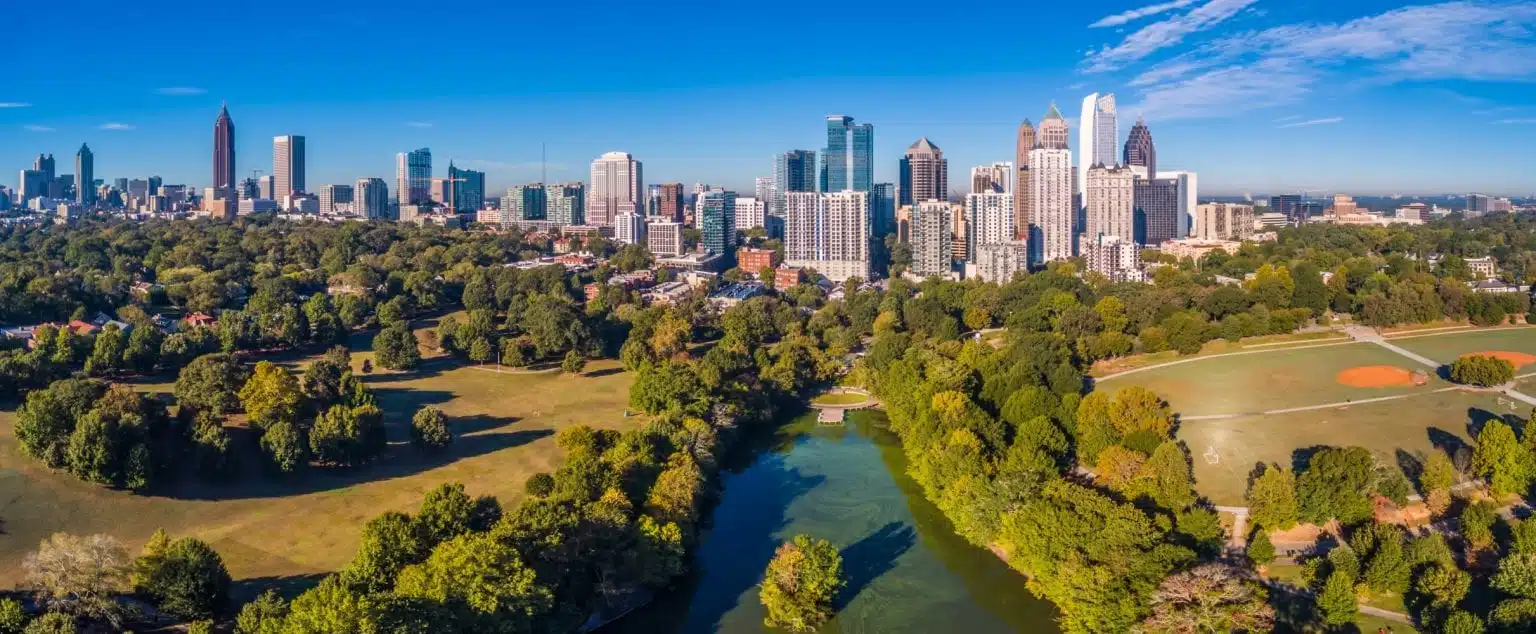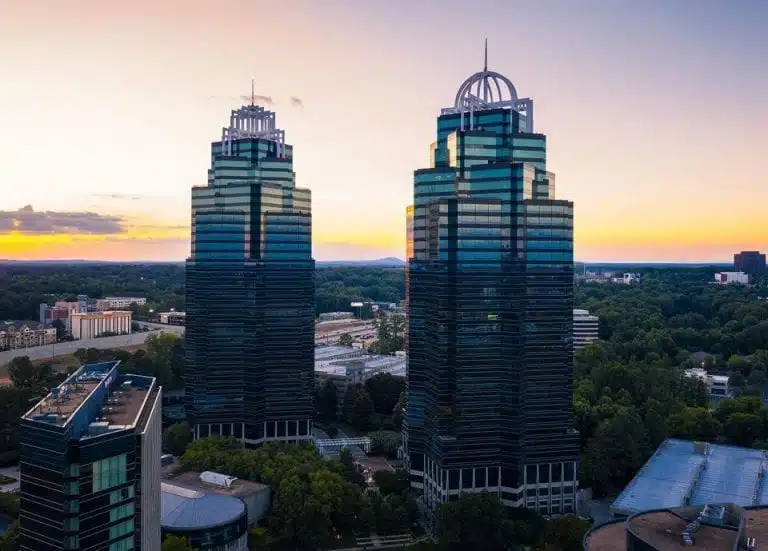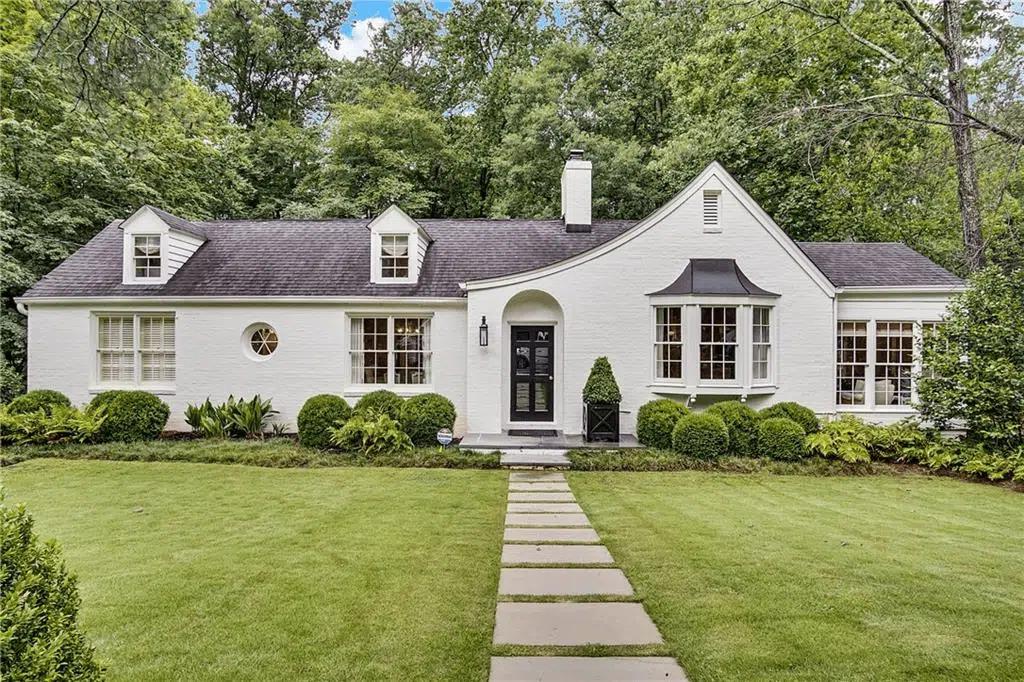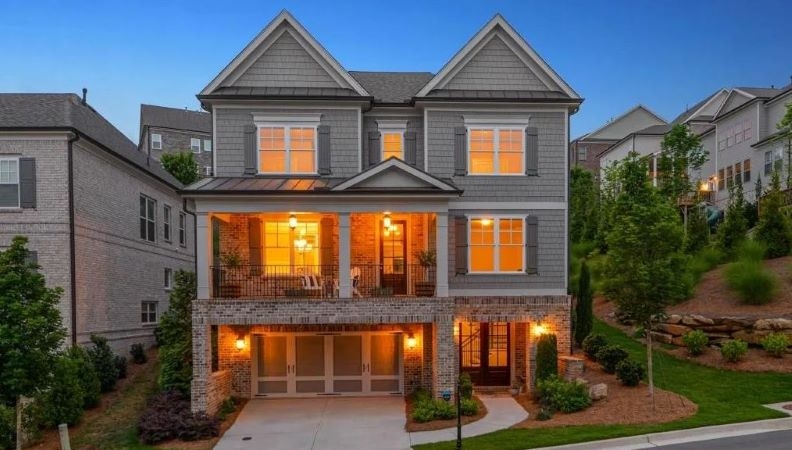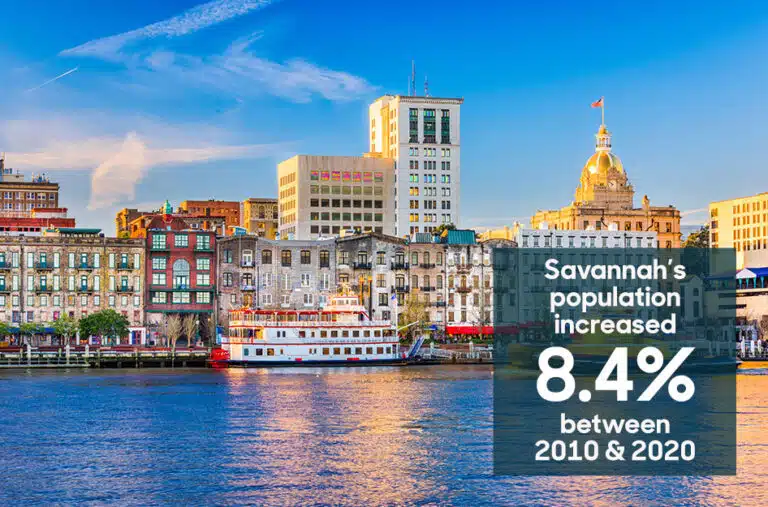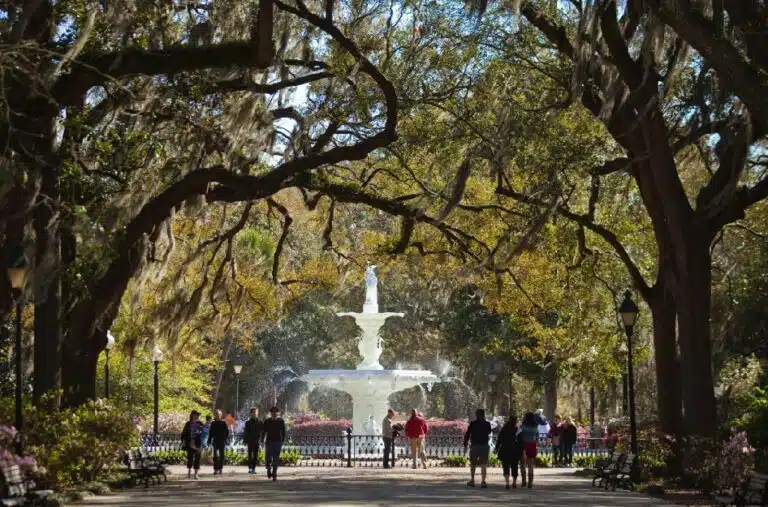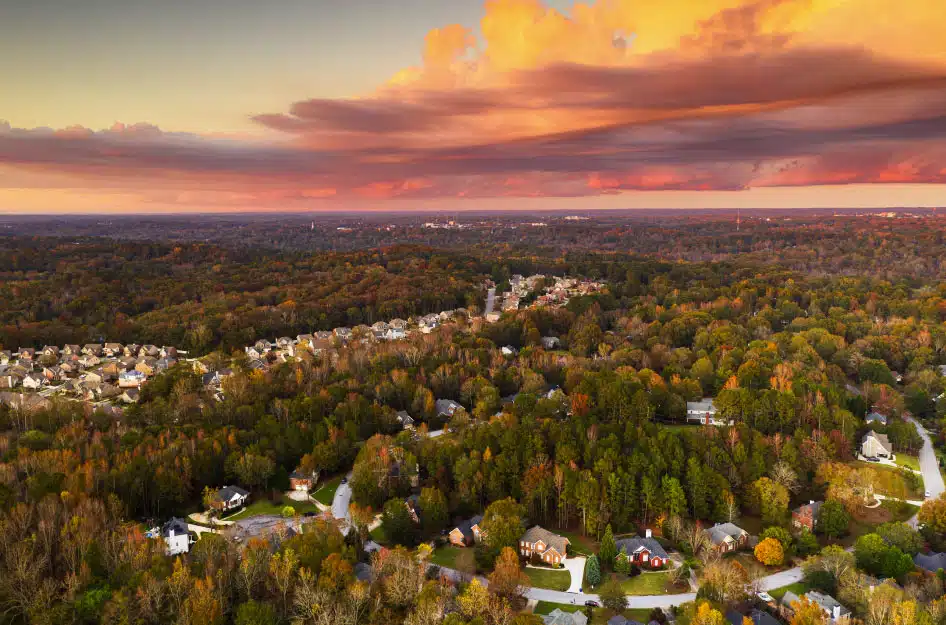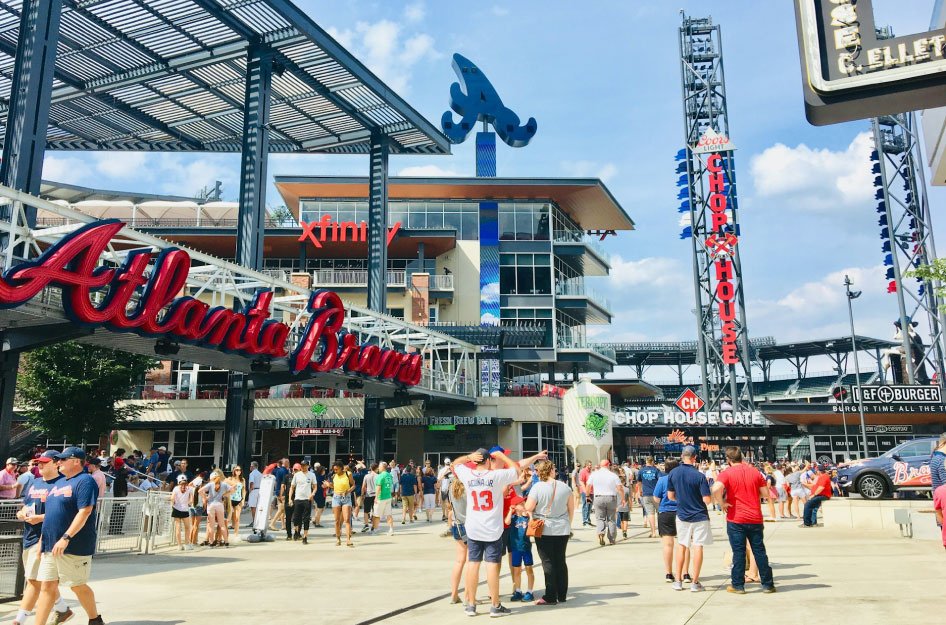21 Pros and Cons of Retiring in Savannah, GA — Is It Really Worth the Hype?
GeorgiaRetirementSavannah
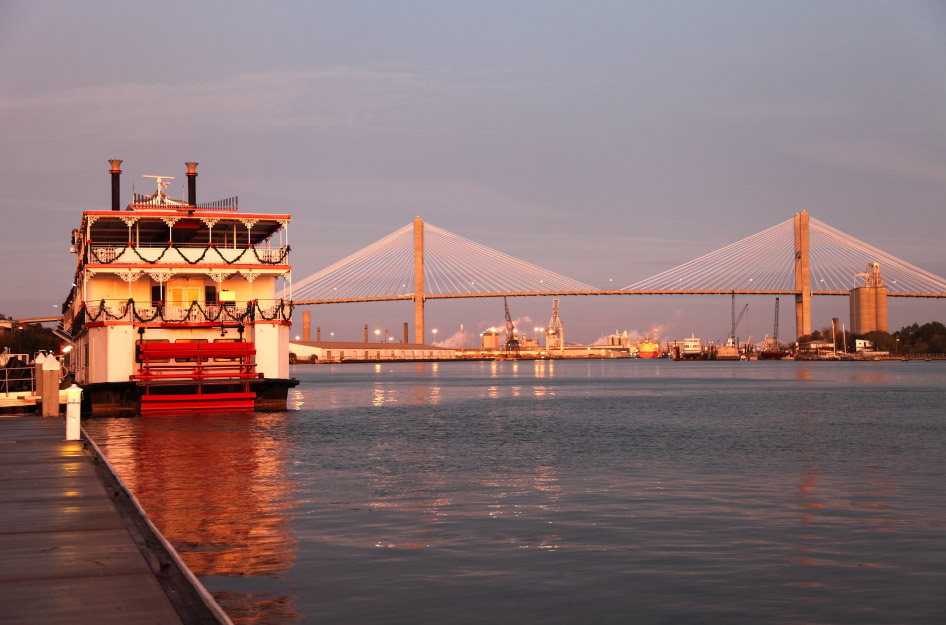
Peaches, Forrest Gump, and historic sites might come to mind when you think of Savannah, Georgia, but there’s a lot more to the Hostess City of the South. Savannah boasts warm weather year-round, beachfront living, and easy outdoor access — making it a great option for retirees. There are also many communities in the city that offer plenty of ways to stay active and engaged. To find out if living in Savannah is right for you, we’ll be taking you through all the pros and cons of retiring in Savannah, GA.
| Planning a move to Savannah? Start by getting a quote from PODS. |
21 Pros and Cons of Retiring in Savannah, GA
While Savannah offers an array of benefits for retired citizens, it’s important to also consider the disadvantages before making a big move. Here are 21 pros and cons of retiring in Savannah.1. Pro: Savannah’s Cost of Living Is Lower Than the National Average
If you’re looking for a more affordable place to live, retiring in Savannah, Georgia, might be just the ticket. Savannah has a cost of living score of 90.2, which is nearly 10 percent lower than the national average of 100. Out of all the pros and cons of retiring in Savannah, GA, the cost of living is definitely one of the top perks.
In addition to being affordable, Savannah is also considered tax-friendly toward retirees. Living in Savannah, you won’t pay tax on Social Security income, and there’s only a partial tax on withdrawals from retirement accounts and public and private pension income.
|
Q: How much money do you need to live comfortably in Savannah, GA? |
2. Con: Savannah’s Crime Rate Is Higher Than Most U.S. Cities
Savannah is considered safer than just 15 percent of other U.S. cities. The violent crime rate here is slightly higher than Georgia’s and slightly lower than the national median. In Savannah, your chances of being a victim of violent crime are 1 in 263. On the flipside, the city’s property crime rate is slightly higher than the national median, with the chances of becoming a victim of property crime jumping to 1 in 50. However, like in most cities, crime in Savannah tends to be concentrated in certain areas. While there are parts of the city that should probably be avoided, there are also safe neighborhoods to live in Savannah.
What To Avoid in Savannah
- Carver Heights
- Cloverdale
- West Savannah
Safest Places To Live in Savannah
- Dutch Island
- Isle of Hope
- Wilmington Island
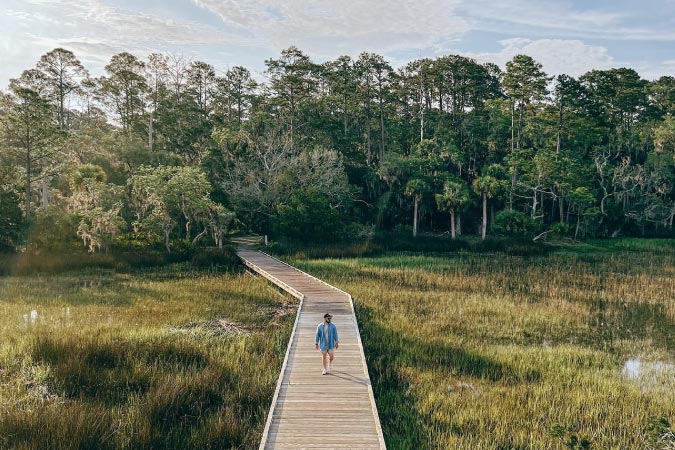
Skidaway Island is a great place to retire for those looking to be immersed in an outdoor paradise.
(Source: Explore Georgia via Facebook)
3. Pro: You Can Retire to an Island in Savannah
Retirees seeking a coastal lifestyle can enjoy the local beaches and vibrant communities of Savannah’s islands. Some of the best places to retire in Savannah, GA, include Dutch Island, Skidaway Island, and Talahi Island.
Dutch Island, GA
- Median home sale price: $625,000
- Average rent (one-bedroom): $1,450
Not only is the gated community of Dutch Island one of the safest places to live in Savannah, it’s also one of the best places to retire in Georgia. The community features a tranquil environment and access to amenities such as a swimming pool, tennis courts, and a deep water dock. It's also close to the Intracoastal Waterway and saltwater marshes, which provide boating opportunities and a relaxing atmosphere.
Skidaway Island, GA
- Median home sale price: $1M
- Average rent (one-bedroom): $1,000
Situated on the Georgia coast near the city of Savannah, Skidaway Island is a great place for anyone looking to be immersed in an outdoor paradise. It's also home to The Landings, a private, secure community, and the Skidaway Island State Park with plenty of wildlife on the island.
Butter Bean Beach is a popular spot that features a boat ramp, picnic tables, a public beach, and Bandy's Bait & Tackle shop. During the week, all sorts of food trucks set up shop, serving a unique variety of options.
Talahi Island, GA
- Median home sale price: $720,000
- Average rent (one-bedroom): $1,750
The word "talahi" means "among the oaks," and it suits this neighborhood perfectly. Tall live oak trees line both sides of the streets, creating a canopy of shade for the residences on the island.
Ranch-style homes with brick or clapboard exteriors can be found on Talahi, but you’ll also see larger homes with neoclassical designs from the early 2000s.
Many of the area's residents enjoy boating on Bull River or socializing at the Talahi Island Community Club. Looking for a great meal out? Head over to Flying Fish and check for an array of seafood dishes, including fried mahi mahi and shrimp. The restaurant also features live music on the patio on weekends.
4. Con: Savannah Has a Low Percentage of 65+ Residents
While Savannah has a lot to offer retirees, you won’t find many in the city. Only 14 percent of Savannah’s residents are 65+, which is below the national average of 17.7 percent. If you’re looking for a large retired community, you may not find it in the city proper.5. Pro: Savannah’s Skidaway Island Has Plenty of 65+ Residents
While you might not find a lot of retirees in the city proper, you’ll find plenty of 65+ residents in communities like Skidaway Island. In fact, this demographic makes up over 50 percent of the area’s population.6. Con: Public Transportation Could Be Improved
Compared to other cities, Savannah’s public transit isn’t very extensive. Chatham Area Transit (CAT) provides bus service throughout the city, though it has limited frequency and scope. This makes it challenging for people without cars to get around efficiently, particularly in more suburban areas. Fortunately, the city's bike-friendly and pedestrian-friendly neighborhoods help alleviate the issue — especially if you move to areas with a high walk score, like downtown.

Some of the best spots to dine in Savannah include the Olympia Cafe, The Grey, and Vinnie Van GoGo's.
(Source: The Grey via Facebook)
7. Pro: Savannah Restaurants Are Diverse and Delicious
The city of Savannah is known for its unique cuisine — characterized by its creative use of various cooking techniques and cultural flavors. There are plenty of places to eat in this area, such as restaurants that serve barbecue and seafood dishes, as well as those that feature farm-to-table ingredients, like Cha Bella. Some of the tastiest spots to visit include the Olympia Cafe, The Grey, and Vinnie Van GoGo's.8. Con: Tourism in Savannah Can Be a Hassle
When it comes to the pros and cons of retiring in Savannah, GA, we can’t forget the large number of tourists that flock to this charming city during the warmer months. As a historic city, Savannah is home to plenty of tourist attractions. While this is great for the economy, it goes hand in hand with traffic, crowds, and longer wait times at restaurants. All in all, it’s one of the biggest disadvantages of retiring to Savannah.9. Pro: The Beaches in Savannah Are a Dream
Situated near the coast, Savannah's beaches are easy to access, plus they boast clear waters, white sand, and abundant wildlife. The area's beaches can satisfy all your recreation and relaxation needs. Just 18 miles from Savannah, Tybee Island is a popular destination for sunbathing, shell-searching, and fishing. But there’s not just one beach. The island boasts several spots to lounge the day away:
- North Beach Tybee Island: North Beach features clear waters and soft sands, ideal for playing frisbee and constructing sandcastles.
- Mid Beach Tybee Island: Unsurprisingly, Mid Beach is located between North and South Beaches. Although there are no major landmarks in the area, Memorial Park has playground equipment for children, making it an ideal spot to take the grandkids.
- Back River Beach Tybee Island: If you’re looking for a more tranquil getaway, head to the Inlet Avenue exit of Highway 80 and follow it to Back River Beach. This “secret beach” is known for its small, quiet waves and the occasional dolphin sighting. It’s a perfect place to relax with a good book or take your kayak out for a spin.
10. Con: Flying In and Out of Savannah Can Be a Pain
Savannah's relatively small airport may be a deal-breaker for those who plan to travel a lot during retirement. As a small to midsize airport, it handles a lower volume of flights compared to major airports, which means fewer options for travelers.
Still, a mid-size airport is better than no airport at all. And, despite its smaller size, the Savannah/Hilton Head International Airport has been ranked the No. 1 airport in the U.S. by Conde Nast Traveler Readers’ Choice Awards for five consecutive years!
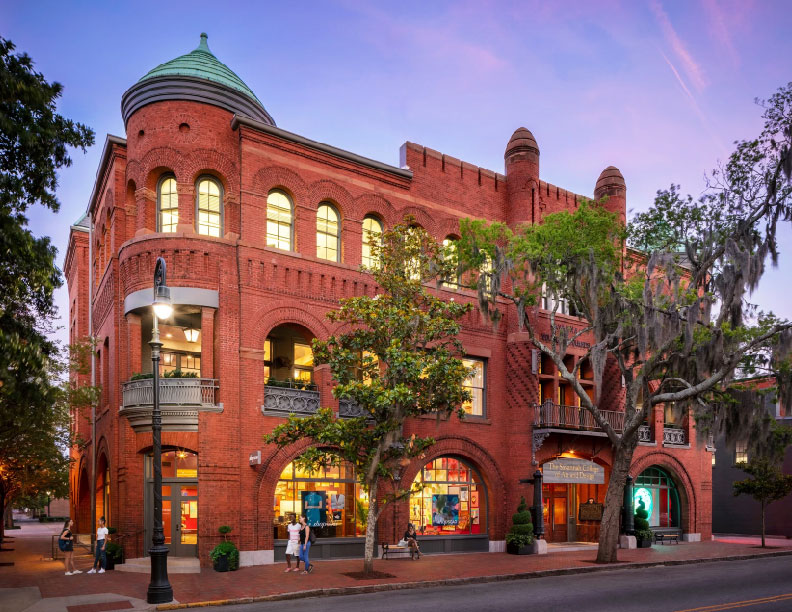
The Savannah College of Art and Design (SCAD) is a private art and design university located in the city.
(Source: SCAD - The University for Creative Careers via Facebook)
11. Pro: Higher Education Opportunities Are Abundant
Savannah is a historic city known for its architectural and cultural heritage, and its universities are no different.
You can expand your education at the Savannah State University, a Historically Black College or University (HBCU) that offers majors in a wide variety of fields.
The Savannah College of Art and Design (SCAD) is a private art and design university located in Savannah that is highly regarded globally. Among the popular majors at SCAD are motion media design, animation, and visual effects. The school puts on fun festivals and events during the year, such as the Sand Arts Festival on Tybee Beach and Savannah Film Festival.
12. Con: Savannah Gets Very Humid
The subtropical climate of Savannah means it gets hot and humid in the spring and summer, with average temps climbing to 91 degrees in July. Fortunately, winter and fall provide a nice break from the heat. Although some people enjoy the warm weather, others may find it hard to cope with the humid heat and the discomfort it causes (including higher energy bills).13. Pro: Savannah’s Architecture Transports You Back in Time
Savannah’s architecture is distinct from many other cities across the country, and notable structures — including many churches and homes — are well-preserved. The Savannah Historic District is full of charming buildings that showcase various architectural styles, such as Federal, Greek Revival, and Georgian.
One of the city’s most popular attractions is 30-acre Forsyth Park, where you’ll find the 150+ year-old Forsyth Fountain which was inspired by fountains in Paris.
14. Con: Savannah Is Home to Some Bothersome Pests
Although sand gnats do live primarily in the sand, these pesky pests also reside in the wet and grassy areas of greater Savannah, including parts of Richmond Hill.
The peak season for these insects aligns with the region’s busiest time of year, from spring to late summer. Other regional pests that can be harmful to humans include horse flies and mosquitoes.
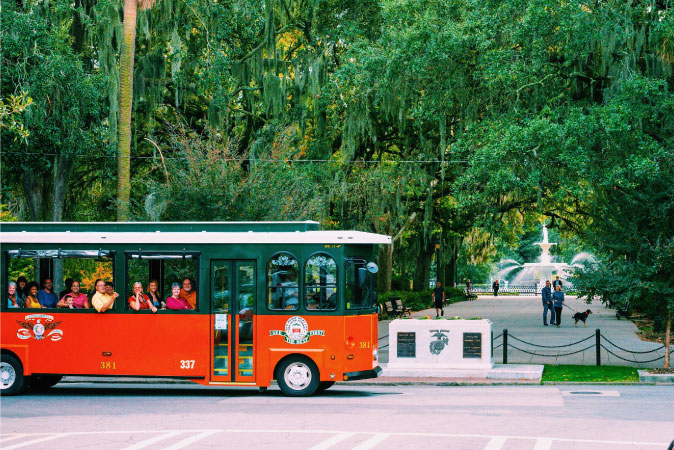
Retiring in Savannah means plenty of time to explore the city’s rich history and breathtaking sights.
(Source: Old Town Trolley Tours (Savannah) via Facebook)
15. Pro: Savannah Is a History Buff’s Dream Come True
Founded in 1733, the city of Savannah is nearly 300 years old. It’s no wonder tourists travel from all over the world to explore the city’s rich history and breathtaking sights. Some of our favorites include:The Ralph Mark Gilbert Civil Rights Museum
This museum was established to honor Ralph Mark Gilbert, an instrumental figure in Savannah’s Civil Rights Movement. It aims to educate people about his life, as well as the history of African Americans in the city.Juliette Gordon Low Birthplace Museum
The birthplace of Juliette Gordon Low — founder of the Girl Scouts and a pioneering figure for women’s empowerment — is a must-see for anyone visiting Savannah.Bonaventure Cemetery
One of the most popular destinations in the city is the beautiful and historic Bonaventure Cemetery. Originally established as Evergreen Cemetery in 1846, it was later purchased by the city and renamed in 1907. It was featured in both the novel and film adaptation of John Berendt's "Midnight in the Garden of Good And Evil."16. Con: Hurricanes Are Always a Risk
As if hurricanes weren’t enough, Savannah’s coastal location means flooding and evacuations are a real possibility. While you’ll need a hurricane kit and an evacuation plan in place, needing to actually pack up and leave doesn’t happen as often as you might think. You will want to purchase a generator for your new home, though. Just recently in 2024, Savannah was hit by Hurricane Helene, which left many neighborhoods without power for days on end.17. Pro: Retirees Can Rely on Quality Healthcare
Does Savannah, Georgia, have good healthcare? With easy access to acclaimed health centers, the simple answer is yes.
Memorial University Medical Center and St. Joseph's/Candler are some of the area's major medical facilities. There are also two cancer centers: The J.C. and Nancy Lewis Cancer Research Pavilion and the Curtis and Elizabeth Anderson Cancer Institute.
The medical center of Memorial University is home to a Level 1 trauma center, an intensive care nursery, a cancer research laboratory, and a children's hospital. While St. Joseph's/Candler is the only facility in the area to achieve both MAGNET status and network accreditation.
18. Con: Sometimes the Weather Can Restrict Outdoor Recreation
Most of Savannah’s recreational activities are outdoors. Whether you’re lounging at the beach or strolling around the Historic District, extreme temperatures during the summer can make time outside unenjoyable. And, while the winter months are still mild, sometimes the weather isn’t quite warm enough for typical beach adventures.
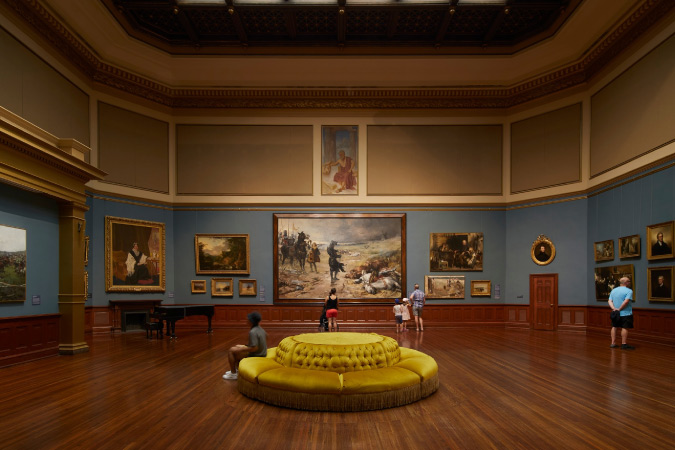
Telfair Museums features three unique buildings with a wide range of artwork from traditional to cutting-edge.
(Source: Telfair Museums via Facebook)
19. Pro: Savannah Has an Impressive Arts and Culture Scene
Since one of the major draws to Savannah is its rich history, it’s no surprise that the local art and culture institutions make it easy to immerse yourself in a different time period.Telfair Academy
The Telfair Academy is a museum that focuses on traditional sculpture and art, located inside a 19th-century mansion. It is one of three facilities operated by Telfair Museums. It and the Owens-Thomas House & Slave Quarters are both National Historic Landmark sites built in the early 19th century. The third and final building is the Jepson Center.Jepson Center
The contemporary Jepson Center, which is located across from the Telfair Academy, is a glass and marble structure that was designed by Moshe Safdie. It features exhibitions that showcase works by African-American, Southern, and local artists.The Jepson Center is also home to the Telfair Children’s Art Museum — a great place to take the grandkids.
Savannah Theatre
The historic Savannah Theatre is a popular venue for musical performances and plays in downtown Savannah. It is one of the oldest continuously operating theaters in the country.20. Con: Professional Sports Are Lacking in Savannah
While Savannah has a few professional sports teams — including the Savannah Clovers Football Club and Savannah Ghost Pirates — the city’s professional sports scene isn’t as strong as in other Georgia cities, like Atlanta.21. Pro: Savannah Has Top-Notch Retirement Communities
Whether you prefer an assisted living facility or you’re comfortable with independent living, there’s a retirement option in Savannah for everyone.Assisted Living Facilities in Savannah, GA
- Harmony at Savannah: Ideal for those who need close medical care with 24-hour supervision.
- The Marshes of Skidaway Island: A relaxed and quaint island atmosphere.
- Buckingham South: One of the highest-rated facilities in the city, providing service across many regions of Savannah.
Independent Living in Savannah, GA
- Savannah Square: Independent living, as well as assisted living and outpatient therapy.
- The Social at Savannah: Engaging atmosphere with lots of activities.
- Oaks at Savannah: Beautiful environment with top-notch healthcare services and meals.
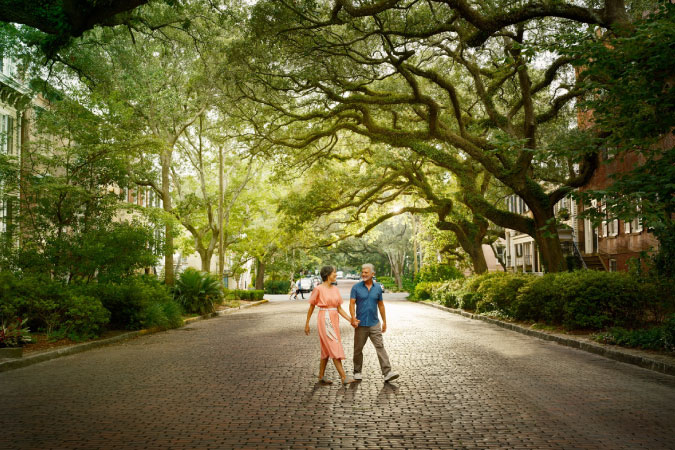
(Source: Visit Savannah via Facebook)
Wrapping It Up: Is Savannah, Georgia, a Good Place To Retire?
Historic and charming Savannah may be one of the most underrated cities to retire in the South. It all comes down to whether you think the pros outweigh the cons. If you love warm weather, beaches, history, and great food, and don’t mind the occasional crowds of tourists and hurricane warnings, then you’ll probably fall in love with the city right away!Pros of Retiring in Savannah
- Savannah’s cost of living is lower than the national average.
- You can retire to an island in Savannah.
- Savannah’s Skidaway Island has plenty of 65+ residents.
- Savannah restaurants are diverse and delicious.
- The beaches in Savannah are a dream.
- Higher education opportunities are abundant.
- Savannah’s architecture transports you back in time.
- Savannah is a history buff’s dream come true.
- Retirees can rely on quality healthcare.
- Savannah has an impressive arts and culture scene.
- Savannah has top-notch retirement communities.
Cons of Retiring in Savannah
- Savannah’s crime rate is higher than most U.S. cities.
- Savannah has a low percentage of 65+ residents.
- Public transportation could be improved.
- Tourism in Savannah can be a hassle.
- Flying in and out of Savannah can be a pain.
- Savannah gets very humid.
- Savannah is home to some bothersome pests.
- Hurricanes are always a risk.
- Sometimes the weather can restrict outdoor recreation.
- Professional sports are lacking in Savannah.
| Q: Is Savannah, Georgia, a good place for retirees? A: After considering all the pros and cons of retiring in Savannah, GA, it’s clear that Savannah is a very good place to live for retirees! |
Move to Savannah, Georgia, With PODS
If you’re ready to relocate to beautiful Savannah, consider making it a flexible move with PODS. Have a portable storage container delivered right to your driveway where you can pack and load at your own pace. If you need help with the heavy lifting (or packing up the kitchen), PODS can refer you to local packing and loading help. When you’re ready, your container will be picked up and transported to your new Savannah home. And there’s no need to feel rushed, since one month of storage is built into the cost of every PODS move.
Editor’s note: For ease of reading, monthly rental prices were rounded to the nearest $25 and home values were rounded to the nearest $100.

Your quote in 60 seconds
Get pricing tailored to your needs!
